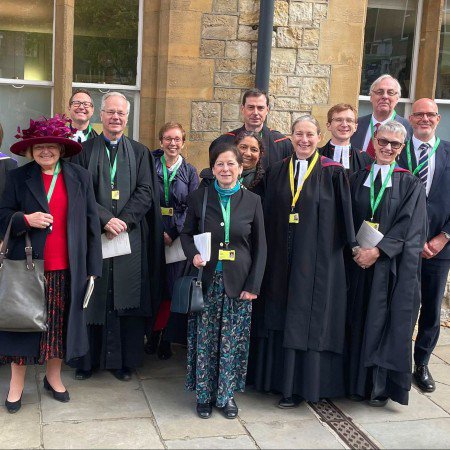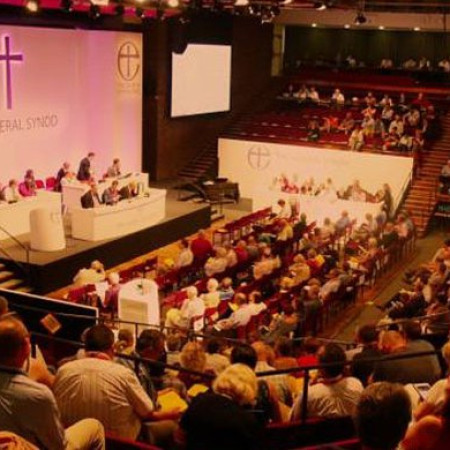The Diocesan Mission and Pastoral Committee reviews arrangements and makes recommendations for pastoral care in the diocese.
The Mission and Pastoral Measure 2011 provides for every diocese to have a Diocesan Mission and Pastoral Committee (DMPC).
This is a representative body of clergy and laity, which is responsible for keeping the arrangements for pastoral care in the diocese under review and making recommendations to the Diocesan Bishop.
The DMPC is established by the Diocesan Synod which also provides its constitution.
What is the role of the DMPC?
The Measure states that it shall be the duty of any person or body carrying out functions under this Measure to have due regard to the furtherance of the mission of the Church of England.
The measure defines mission as:
“the whole mission of the Church of England, pastoral, evangelistic, social and ecumenical.”
More specifically the DMPC must have regard to the following:
- In carrying out any of its functions the mission and pastoral committee shall, without prejudice to section 1, have regard to worship, mission and community as central to the life and work of the Church of England.
- In carrying out any of its functions the mission and pastoral committee shall also have regard to:
(a) the financial implications for the diocese and the Church of England as a whole;
(b) subject to subsection (5), the need to allocate appropriate spheres of work and to ensure that appropriate conditions of service are enjoyed by those employed or holding office in the diocese and, where relevant, that reasonable remuneration is provided for all those engaged in the cure of souls;
(c) the traditions, needs and characteristics of particular parishes; and
(d) any other aspects of the policies of the diocesan synod to which the synod has requested the committee to have regard in discharging its responsibilities.
3. It shall be the duty of the mission and pastoral committee:
(a) to make or assist in making better provision for the cure of souls in the diocese as a whole and, to the extent that the committee thinks appropriate, in particular parts of the diocese or in particular parishes;
(b) from time to time, as the bishop may direct, or as the committee thinks fit, to review arrangements for pastoral supervision and care in the diocese as a whole and, to the extent that the committee thinks appropriate, in particular parts of the diocese or in particular parishes (including sharing agreements in respect of a church or parsonage house and any proposals for sharing agreements);
(c) from time to time, as the bishop may direct, or as the committee thinks fit, to prepare strategies or proposals for carrying out the committee’s functions under paragraphs (a) and (b) for submission to the bishop and the diocesan synod for their approval;
(d) to maintain an overview of matters relating to church buildings in the diocese and their use, other than matters which are within the jurisdiction of the consistory court or within the functions of the Diocesan Advisory Committee;
(e) in the case of listed buildings or buildings in a conservation area, to make, in accordance with section 55, every endeavour to find a suitable alternative use or suitable alternative uses for churches which are proposed to be closed and buildings which have been closed for regular public worship in the diocese under a pastoral church buildings scheme and, in the case of any other such building, to develop proposals for the suitable alternative use or uses of the building or for the demolition of the building and the disposal of its site;
(f) where it considers it desirable, to make recommendations to the bishop in accordance with section 6 or 21 for any of the matters for which provision may be made under this Measure (other than section 50) by a pastoral scheme or order; and
(g) to carry out any other functions conferred upon a mission and pastoral committee of a diocese by any enactment.
(4) The mission and pastoral committee shall, in carrying out any of its functions, to the extent that it thinks appropriate, consult any other persons or bodies, whether within the Church of England or not, which exercise functions or carry out activities relevant to the functions of the committee.
Suspension of the right of presentation
Each benefice has a patron or patrons. A patron is a person or body who owns the right to present a priest to a vacant benefice. There are several variations of patronage
including, sole patronage (one person or body), joint, patronage by turns and special patronage boards.
The right of presentation to a benefice can be suspended by the Bishop for a period lasting no longer than five years. It is possible to renew the suspension, but again for no longer than five years. The Bishop is required to obtain the consent of the relevant AMPC and to consult the patron, the PCC(s), the area dean and lay chair of the deanery synod concerned before deciding to suspend a patron's right of presentation.
These powers should, in the main, be confined to benefices where pastoral reorganisation is under consideration or in progress and, occasionally, where a change of parsonage house is planned.
The Secretary of the Mission and Pastoral Committee, Canon Nathan Whitehead, maintains a list of current suspensions in the diocese.
A list of benefices in the three Episcopal Areas can be downloaded here:
Any queries regarding the list can be referred to him by email nwhitehead@chelmsford.anglican.org





